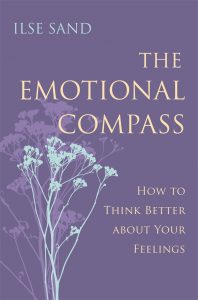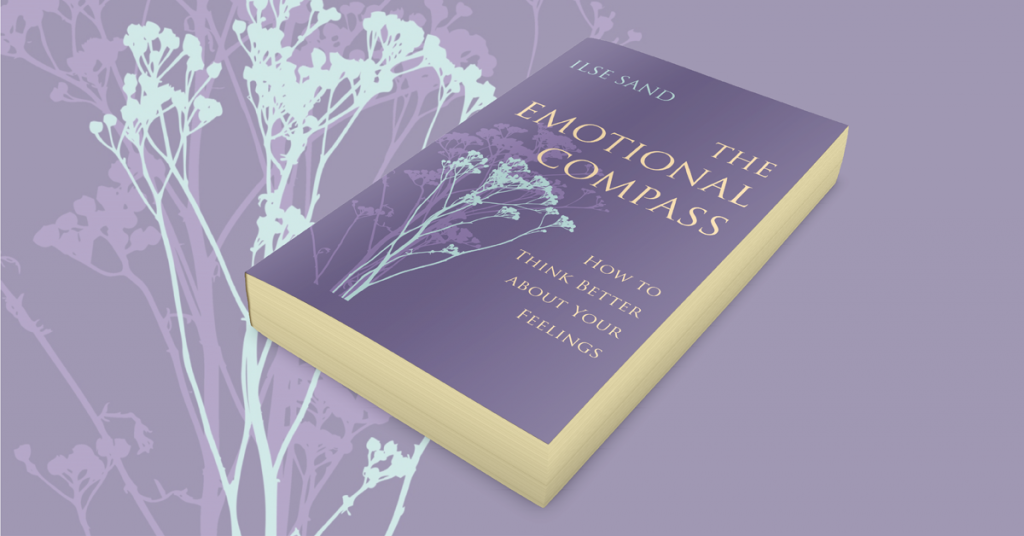In her book The Emotional Compass: How to Think Better about Your Feelings, Ilse Sand provides several different suggestions for how you can handle your anger, so you can maximize the chances of getting what you want.
Feelings of anger often arise in relationships. It is entirely natural, and it is often the case that the more important the other person is to us, the stronger our emotional reactions are in relation to that person – including anger.
But what do you do when you get angry – even at someone you love?
Every so often, I meet course participants or clients who have heard that it’s all about getting anger off your chest. However, when you release anger, you’ll also face anger from the other person because anger is contagious. In fact, the anger you get back can intensify your anger, leading to an escalated situation that we’d all rather avoid. . However, repressing anger can also cause problems in your relationship as it creates distance, hostility and can lead to relationship breakdown.
Fortunately, there are solutions . The first step is to decide into which of four categories your anger falls. Is it caused by:
- wounded self-image,
- a need to protect yourself,
- the other person breaching values your values, or
- a violation of your boundaries?
For example, if your personal values were at stake (Category 3) Let’s say your spouse is taking a nap on the sofa in the middle of the day even though there are many chores that need doing and taking a midday nap is something you would do unless you were sick. So, you become very irritated or angry.
You may want to give them an earful, but that would probably not make them get up from the sofa and start taking care of the practical things you would like to have done – this would probably cause an argument or create an atmosphere, and it’s not guaranteed that they would start doing the chores.
But there is something else you can do to positively change the thought/action pattern you are in. You have two options: you can either try to get your spouse to change their behaviour, or you can change yours.
Your anger stems from your rule that forbids you from taking a break to prioritise something you enjoy instead of doing chores. It’s likely that if you were to sit out in the garden with a good book instead of milling around your slumbering spouse in irritation, your anger would diminish. If you change your thoughts, you can change your behaviour and your response to situations.
But changing your behaviour alone doesn’t alter your spouse’s. So, you could decide to try to get your spouse up off the sofa to help, for example, put together some furniture from Ikea that you are looking forward to using. Instead of expressing your anger, you could make a big deal out of relating how happy you would be to get the new furniture in place – and, maybe, what you’d like to do for them in return. Building a positive atmosphere will improve your relationship and this may result in you sharing the chores when the time comes: you compromise on the timing of the chores because they don’t need to be done as soon as they appear, and your partner compromises on the carrying out of the chores – they need doing, but sharing the burden results in less work and in a happier environment, will see that they will get done quicker.
Every time you are angry, there is something you want that you’re not getting. Instead of expressing that anger, it generally provides a better result if you figure out exactly what it is you want – and either ask for it or let it go. Asking for what you want instigates a positive change, thus avoiding anger. If you don’t know what you want, and you can’t find a path through that, chances are it’s not that important and you will be happier and healthier for letting it go.
If your anger is due to the fact that the other person is breaching your values (category 3), you can either allow yourself to do the same but to re-frame your thinking into a more positive mindset – or try to get the other person to change his or her behaviour to build a happier environment for you both. Different strategies are suggested for each of the other three categories, with the ultimate result being harmonious for everyone involved.
Win a copy of The Emotional Compass by entering the giveaway below! Available to readers in the UK and Ireland
Goodreads Book Giveaway
The Emotional Compass
by Ilse Sand
Giveaway ends September 28, 2016.
See the giveaway details
at Goodreads.

The Emotional Compass: How to Think Better about Your Feelings
£8.99 / $15.95
Available now!

